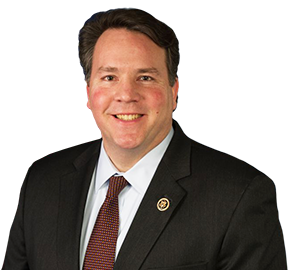Congressmen push to slash the EPA by 15%
Coal country congressmen, fed up with the Environmental Protection Agency, have introduced legislation to cut that agency’s staff by 15 percent. Noting that during the government shutdown of 2013, 95 percent of EPA personnel were deemed “non-essential,” Reps. Morgan Griffith, R-Va., and Alex Mooney, R-W.Va, have introduced the “Maximum Achievable Contraction of Technocrats Act of 2015.”
“Clearly, the EPA has a role,” Griffith told the Washington Examiner. “I’m not one of those folks who think the EPA doesn’t have a role … But frankly, the EPA seems to be full of people who seem to have nothing better to do than to think of new regulations.
“This is a bill from frustration,” he added. “Here’s the bottom line: Folks in D.C. in the ivory towers say we can transition into a ‘new economy.’ I’ll tell you, all we’ve got is mountains.”
The goal of the legislation is to reduce the size of the organization by 15 percent by 2018, but Griffith said he would be satisified with any meaningful reduction, willing to accept a reduction as small as 12 percent, for instance. The EPA employs 15,200, so a 15 percent cut would eliminate about 2,300 jobs.
Griffith noted that his concern with the size of the EPA’s staff stems from philosophical concerns in addition to more narrow coal concerns for his district, and that other industries have been affected by the EPA.
Griffith said the situation in his district is bleak, having lost “at least 1,000 jobs” in 2015, but noted that the situation in regions like eastern Kentucky and West Virginia is arguably worse.
Mooney won election to Congress in 2014 in a tough primary and general election with a honed message against, among other things, “Obama’s War on Coal,” as he terms it.
“This country has never seen anything like the out-of-control EPA under President Obama,” Mooney told the Examiner. “Frankly, it’s an affront to the heritage of our state.”
“It’s like going into Kentucky and trying to ban horse racing,” he added.
Mooney pointed the Examiner to a 2008 YouTube clip of then-Sen. Barack Obama pledging to “bankrupt” the coal industry, and indicated that Obama is using the EPA to make good on that pledge, “ignoring science” and “having already made his conclusion.”
“So if somebody wants to build a coal-powered plant, they can. It’s just that it will bankrupt them because they’re going to be charged a huge sum for all that greenhouse gas that’s being emitted. That will also generate billions of dollars that we can invest in solar, wind, biodiesel and other alternative energy approaches,” Obama said in an interview with The San Francisco Chronicle editoral board in January 2008.
When asked about potential parallel legislation in the Senate, lead sponsor Griffith was optimistic, but not from his state. “Warner and Kaine, I mean, come on,” Griffith said, referring to Sen. Mark Warner, D-Va., and Tim Kaine, D-Va. Though Griffith noted, “in fairness,” that Warner had been helpful on a few of his initiatives in the past.
Griffith represents a substantial, highly rural district that begins just west of the city of Roanoke, encompassing most of what is just called “Southwest” in Virginia. The area has long been a geographical and political oddity. The far western town of Ewing, Va., is farther west than Detroit and all of West Virginia, and is closer to nine state capitals than it is to Virginia’s capital, Richmond.

